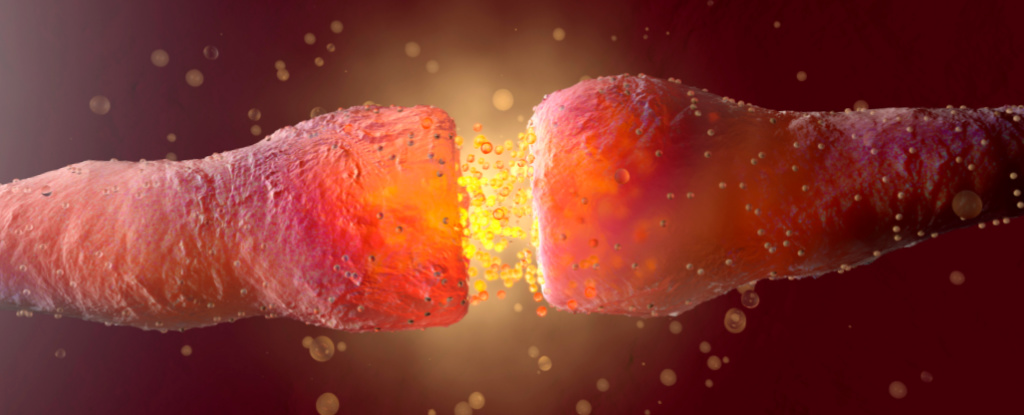A new study reveals a potential link between reduced levels of serotonin, a well-known chemical messenger, and long COVID. This discovery brings together multiple possible causes of the debilitating condition that can result in up to 200 different symptoms.
Following in the footsteps of previous researchers, immunologist Andrea Wong and colleagues from the University of Pennsylvania aimed to uncover distinct biological changes that could explain the puzzling array of symptoms experienced by individuals with long COVID.
The study builds upon previous research that has made significant progress in understanding the causes of long COVID, which can persist for months or even years after an acute SARS-CoV-2 infection. However, this growing body of research also presents a complex picture, with overlapping theories that include increased blood clotting, the presence of the virus in the body, ongoing inflammation, and nervous system dysfunction.
The new study’s findings suggest that these mechanisms may be interconnected and could provide an explanation for the cognitive difficulties and memory loss reported by long COVID patients. Furthermore, if the results are replicated in larger cohorts, they could also pave the way for potential treatments.
The researchers analyzed blood samples from 58 long COVID patients and compared them to samples from 30 individuals who had fully recovered. They discovered that those with long COVID had lower levels of serotonin, a chemical messenger known for its role in mood regulation, memory, cognition, and sleep. Additionally, viral remnants were found in the stools of long-haulers.
Using animal models and organoid cultures, the team developed a hypothetical pathway linking serotonin depletion in the gut, where it is primarily produced, to its effects in the brain. According to this proposed connection, lingering viral material triggers the immune system to release interferons, signaling proteins involved in antiviral defense, leading to inflammation. This inflammation interferes with the absorption of tryptophan, an amino acid necessary for serotonin production in the gut. It also disrupts the function of platelets, blood cells responsible for clotting and transporting serotonin throughout the body. As a result, there is reduced serotonin circulation, which impairs the activity of the vagus nerve, a crucial pathway for communication between the brain, gut, and other organs.
“Our findings suggest that several current hypotheses for the pathophysiology of long COVID (viral reservoir, persistent inflammation, hypercoagulability, vagus nerve dysfunction) might be linked by a single pathway that is connected by serotonin reduction,” explained Maayan Levy, microbiologist from the University of Pennsylvania and senior author of the study, on social media.
In mice, low serotonin levels and reduced vagus nerve activity due to a viral infection resulted in impaired performance on memory tests. Interestingly, restoring serotonin levels prevented these memory impairments, although they do not perfectly replicate the cognitive issues experienced by long haulers.
Further human studies are necessary to confirm these suggestions, and future research needs to explore why some individuals in a different cohort of long COVID patients, potentially with milder symptoms, did not exhibit low serotonin levels.
“We hope that our discovery will inspire clinical studies that use these insights to develop new tools for the diagnosis, monitoring, and treatment of long COVID,” added Levy. “They are urgently needed.”
The study has been published in Cell.


